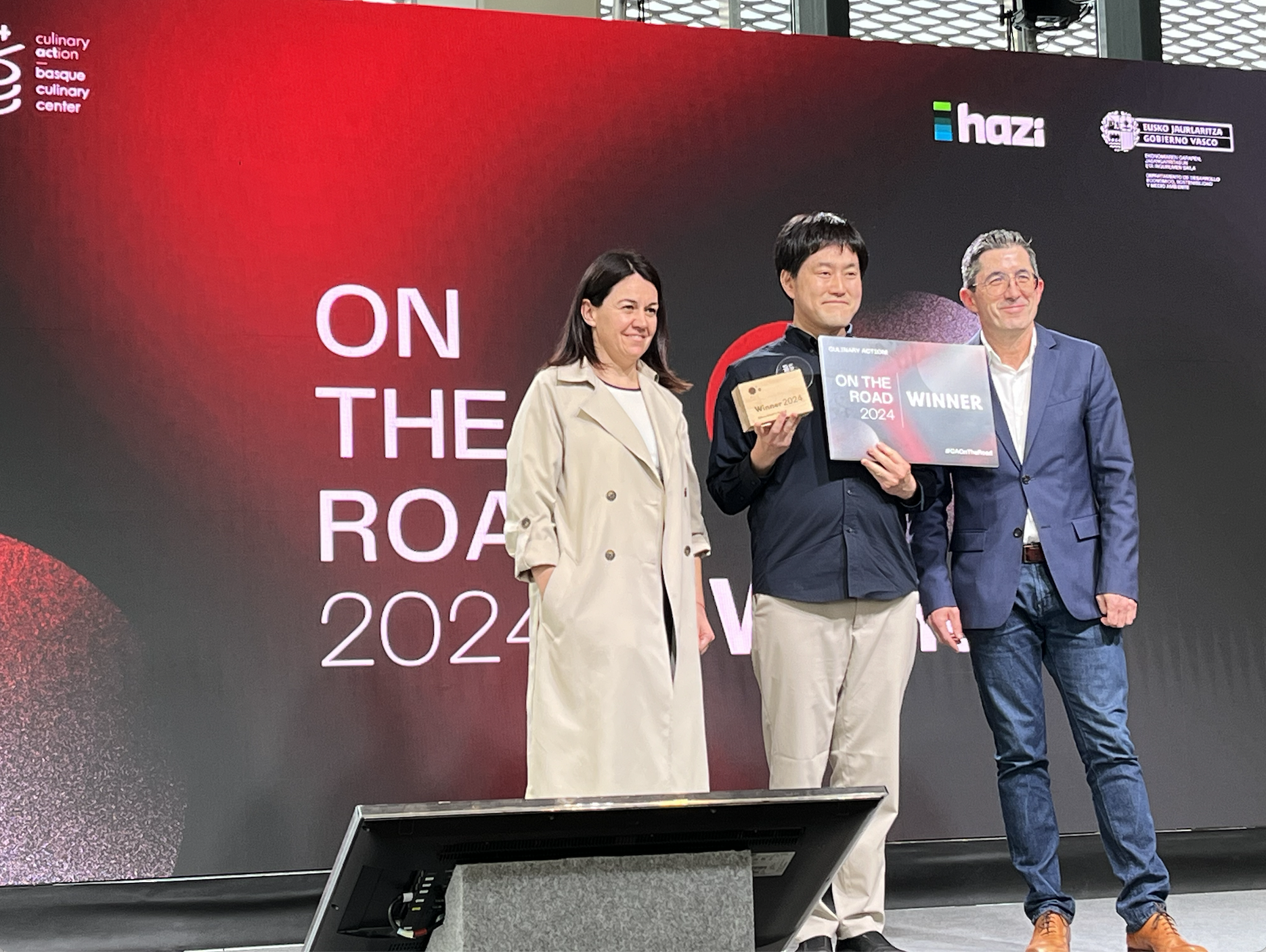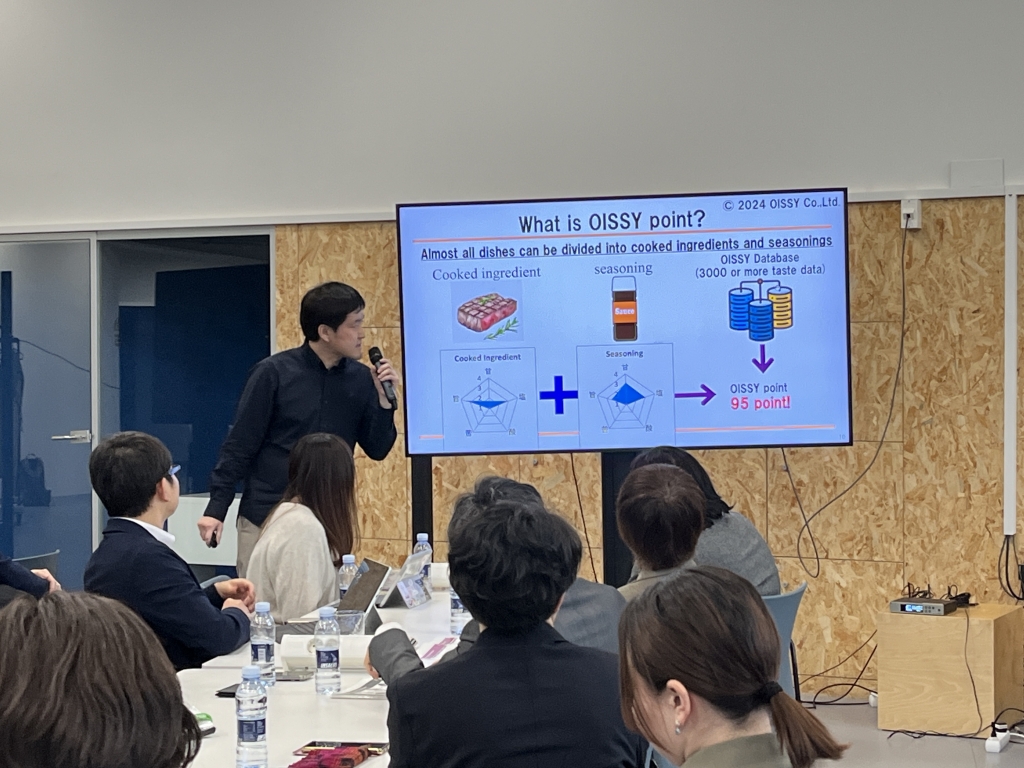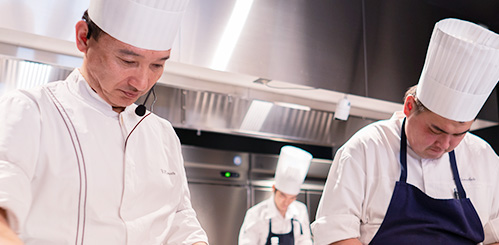[Ryuichi Suzuki 2/2] Report on Basque Culinary Center Experience: Learnings from BCC and the Future of Food as Advanced by OISSY

Based in San Sebastian, Spain, the Basque Culinary Center (BCC) is renowned as a cutting-edge academic institution for food. In April 2024 BCC hosted the grand finals of its annual global pitch competition for foodtech startups with the aim of supporting entrepreneurs.
In 2023, OISSY Inc. won the BCC Award in the Japan round of the third edition of “Culinary Action On the Road by BCC” held in collaboration with Tokyo Food Institute (TFI) and Future Food Institute (FFI), which included the right to participate in the above-mentioned grand finals of the competition, where the company won first place.
In this report, we asked Ryuichi SUZUKI, CEO of BCC, to share his impressions of his visit to BCC and its uniqueness, and to tell us about the significance of participating in this competition.
A pitch contest that purely evaluates the technology and potential of startups
OISSY technology uses five sensors to detect bitterness, saltiness, , sweetness, sourness and umami, and then uses neuron network analysis to quantify taste. Using these data, the superiority of a product and how well it pairs with food can be visualized, and the data can be used in flavor development and marketing promotion.
“My participation in the pitch was by chance. I was originally scheduled to speak at the event, but then someone asked me if I would like to take part in the pitch. I don’t usually take part in these types of competitions, but I was interested in overseas business, so I thought I’d give it a try since it was hosted by BCC,” remarked Ryuichi SUZUKI.
“Culinary Action On the Road by BCC 2024” held preliminary rounds in five countries around the world including Japan in 2023, with the winners of each round moving on to the grand finals of theglobal pitch contest. Five companies participated in the Japan round of the third edition of this competition. Ryuichi SUZUKI commented, “To be honest, I didn’t think we would win.”
“I feel that in recent pitch contests, companies which already benefit from external funding, enjoy sales growth, or have a large staff tend to be highly evaluated in competitions. There are also times when I feel that venture capital firms are on the judging panel, and that they are trying to raise funds by giving the company a high valuation. On the other hand, OISSY is a company in which I own 100% of the shares. In terms of our phase of development, we seem to be behind other companies, so I didn’t think we could win. However, winning the BCC Award made me aware that “Culinary Action On the Road by BCC” evaluates companies purely on their technology and potential and convinced me that participation in this competition was quite meaningful. When it comes to startups, people tend to be impressed by the businesses that can attract investment funding. Of course, that is one metric, but I personally see it as a measurement of neither superiority or inferiority. I would like to see the participation of people who operate their business relying on their own capital or those whose business is high technology-centric even if they are small in scale,.”
BCC’s unique fusion of gourmet food and science
BCC is attracting attention from around the world as an academic institution where students can gain the 360-degree grasp of world of food. The education is not only from the perspective of culinary skills but also from the standpoints of technology, open innovation, science, and more. So what kind of curriculum does the school actually offer?
“For example, there is a sensory evaluation room where each of the 40 to 50 students is assigned a desk partitioned off so they cannot see what is going on around them. It has a water tap so that they can rinse their mouths when tasting. I was amazed at how well-equipped the facilities are.”
Furthermore, Ryuichi SUZUKI observed that the BCC promoted a more scientific approach unlike that seen in Japanese culinary schools. During the cooking classes, he saw that students brought their own computers and entered data and notes while cooking.
“When learning cooking in Japan, cooking and science tend to treated as separate disciplines. For example, food and taste are temperature dependent, but in Japan this tends to be discussed more as a matter of feeling. However, BCC adopts a scientific approach. For example, mabove a certain temperature certain reactions will occur. BCC is surprisingly well equipped with devices to determine this threshold. That said, it was also impressive that students don’t spend all their time at BCC, pursuing research. They also value visiting and experiencing restaurants, farms and various other food-related sites.”

Pursuit of new flavors through joint research with BCC
OISSY won the grand finals of the global pitch earlier this year and was also awarded a voucher for a 40 hours of mentoring sessions with BCC. During this session, the winning company can freely use BCC’s knowledge and technical support for their business expansion and development of technology.
Green Ace, which won the Japan competition last year, is using their voucher for their R&D. It is sending its products to BCC for various analyses. Meanwhile, OISSY intends to use the voucher for joint research with BCC.
“I think there are still not enough papers in the field of food, especially in cooking, so I would like to conduct joint research with BCC. Currently, OISSY is also collaborating with a university in Taiwan, so I think research on tastes by nationality is one option.”
Ryuichi SUZUKI would also like to further research into deliciousness and health.
“For example, healthy food (low-salt), such as hospital food, is thought to be untasty, so how can we make healthy food taste delicious? On the other hand, a high salt diet is considered a cause of illness, but in Spain and Japan where salty food is common, the people are said to enjoy long average life expectancies. I’m interested in how we can extend healthy life expectancies, so I’d like to set up a system where I can receive various advice on research on topics like s flavor combinations and whether the feeling that something is ‘delicious’ is itself connected to health. BCC may not have anticipated this kind of use of the vouchers, but I think one of the good things about this pitch contest is its flexibility.”
Although Suzuki ended up taking part in the pitch contest unexpectedly, he says it was well worth it.
“As I mentioned earlier, it has been a valuable experience to have my company’s potential properly evaluated. Even if we had lost along the way, I think there would have been a lot to gain. Personally, my visit to BCC made me aware that I need to think about cooking more scientifically. Also, I had the opportunity to participate in a pitch competition in Japan and on the global stage. In the global finals, there was a sense of each company in competition and I thought we might win. But to be honest, the Japanese competition had so many high-level companies that I didn’t think we had a chance. One thing I felt during my pitch was that Japanese people have a keen sense of taste. I think that this will be a big advantage for Japan in the global market. In the future, I look forward to seeing more companies participating in this competition and to the quality of the Japanese competition increasing. This will make this competition even more valuable in the future.”

Ryuichi SUZUKI
CEO of OISSY Inc. Graduated Keio University Graduate School of Science and Technology with a Master’s degree. Performed contracted work in system development and worked as a researcher at Keio University’s SFC Research Institute while still a student. Employed as both a researcher and special lecturer at Keio University. Developed the AI-equipped “Taste Sensor Leo” and founded OISSY Inc. Authored several books including ”Japanese Sense of Taste is No. 1 in the World” and “Hone Your Sense of Taste and You Won’t Get Sick.” Appeared on the TV programs “Sekai-ichi Uketai Jugyo” (The Most Useful School in the Word /NTV) and “Gaia no Yoake (Dawn of Gaia/TX).” Engages in contracted taste analysis and food compatibility research.




